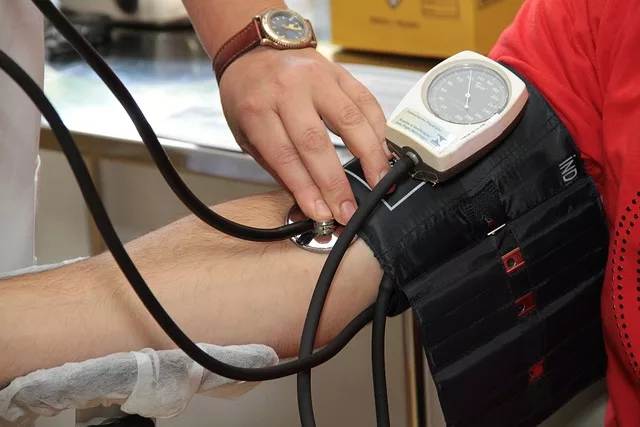Substance abuse evaluations play a crucial role in the identification and selection of appropriate treatment options for individuals struggling with addiction. These evaluations provide valuable insights into the nature and extent of the substance abuse problem and help determine the most effective course of action to facilitate recovery. By thoroughly assessing various factors related to a person’s substance use, evaluations enable healthcare professionals to develop personalized treatment plans that address their specific needs and circumstances.

Understanding Substance Abuse Evaluations
Substance abuse evaluations are comprehensive assessments conducted by trained professionals to gain a deeper understanding of an individual’s substance use patterns and related issues. These evaluations are typically conducted in a confidential and non-judgmental manner, with the goal of gathering accurate information that will inform treatment decisions.
During a substance abuse evaluation, the evaluator takes the time to establish a rapport with the individual, creating a safe and supportive environment. This allows the person seeking help to feel comfortable sharing their experiences and concerns openly. The evaluator listens attentively, showing empathy and understanding, as they guide the conversation towards a thorough exploration of the individual’s substance use history.
There are different types of evaluations available, but they generally involve a combination of interviews, self-assessment questionnaires, medical examinations, and laboratory tests. These evaluations take into account not only the physical aspects of substance use but also the individual’s psychological, social, and emotional well-being.
The Purpose of Substance Abuse Evaluations
The primary purpose of a substance abuse evaluation is to assess the severity of an individual’s substance use disorder and identify any co-occurring mental health issues. Evaluators aim to determine the underlying causes and triggers of the substance abuse problem, as well as any dynamic factors that may hinder or facilitate recovery.
Moreover, substance abuse evaluations provide an opportunity for individuals to gain insight into their own behaviors and motivations. By engaging in a comprehensive evaluation, individuals can develop a deeper understanding of the impact their substance use has on their lives and the lives of those around them.
Furthermore, substance abuse evaluations help healthcare professionals understand the specific substances being abused, the frequency and duration of use, and the impact on various aspects of the individual’s life. This information is crucial in developing an effective treatment plan that addresses the unique needs and challenges of the person seeking help.
Key Components of a Comprehensive Evaluation
A comprehensive substance abuse evaluation typically involves a thorough assessment of several key components. These may include:
- A detailed personal and medical history, including family history of substance abuse and any co-occurring physical or mental health conditions.
- An exploration of the individual’s substance use patterns, including the substances used, frequency of use, and any previous attempts to quit or reduce use.
- An examination of the individual’s social support network, family dynamics, and environmental factors that may contribute to or hinder recovery.
- A comprehensive psychological evaluation to assess for co-occurring mental health conditions or underlying emotional issues that may be driving substance abuse.
- An evaluation of the individual’s motivation and readiness to change, as well as their willingness to engage in treatment.
By thoroughly assessing these key components, substance abuse evaluations provide a comprehensive picture of the individual’s substance use and related issues. This allows healthcare professionals to develop personalized treatment plans that address the root causes of substance abuse and provide the necessary support for long-term recovery.
The Role of Evaluations in Treatment Planning
Substance abuse evaluations form the foundation for developing a personalized treatment plan that maximizes the chances of successful recovery. By providing a comprehensive understanding of the individual’s substance use and related factors, these evaluations guide healthcare professionals in selecting the most appropriate treatment interventions and modalities.
When conducting a substance abuse evaluation, healthcare professionals gather information about the individual’s history of substance use, including the types of substances used, frequency and duration of use, and any previous attempts at quitting. They also assess the impact of substance use on the person’s physical and mental health, relationships, work or school performance, and overall functioning.
Additionally, evaluations may involve screening for co-occurring mental health disorders, as many individuals with substance use disorders also experience conditions such as depression, anxiety, or post-traumatic stress disorder. Identifying these co-occurring disorders is crucial for developing an effective treatment plan that addresses both the substance use and mental health needs of the individual.
Creating a Personalized Treatment Plan
Based on the findings and insights gained from the evaluation, healthcare professionals work collaboratively with the individual to develop a tailored treatment plan. This plan considers the person’s unique circumstances, preferences, strengths, and treatment goals.
During the treatment planning process, healthcare professionals take into account the individual’s readiness for change. This involves assessing their motivation, level of commitment, and willingness to engage in treatment activities. Understanding the person’s readiness for change helps determine the most appropriate treatment interventions and the level of support needed to facilitate recovery.
Treatment plans may include a combination of interventions such as detoxification, behavioral therapies, medication-assisted treatment, support groups, and counseling. The aim is to provide a holistic approach that addresses the physical, psychological, and social aspects of addiction.
Furthermore, treatment plans are not static documents; they are dynamic and adaptable. As the individual progresses through treatment, healthcare professionals regularly reassess the effectiveness of the interventions and modify the treatment plan accordingly. This ensures that the individual receives the most appropriate and effective care throughout their recovery journey.
The Importance of Ongoing Evaluations in Treatment
While the initial evaluation sets the stage for treatment, ongoing evaluations throughout the recovery process are critical. These evaluations allow healthcare professionals to monitor progress, identify any emerging challenges, and make necessary adjustments to the treatment plan.
Regular check-ins and assessments provide an opportunity to gather feedback from the individual regarding their experience with treatment, identify any relapse triggers or high-risk situations, and modify strategies as needed to enhance outcomes. These evaluations also help healthcare professionals gauge the individual’s level of engagement and motivation, allowing them to provide additional support or interventions if necessary.
Moreover, ongoing evaluations help healthcare professionals track the individual’s progress toward their treatment goals. By regularly assessing outcomes and measuring changes in substance use patterns, mental health symptoms, and overall well-being, healthcare professionals can determine the effectiveness of the treatment interventions and make any necessary adjustments to optimize outcomes.
Ultimately, evaluations play a vital role in treatment planning by providing a comprehensive understanding of the individual’s substance use and related factors. They guide healthcare professionals in developing personalized treatment plans that address the unique needs and goals of each individual. Ongoing evaluations throughout the recovery process ensure that the treatment plan remains effective and responsive to the individual’s changing needs, maximizing the chances of successful recovery.

Types of Substance Abuse Treatments
Substance abuse treatment options encompass a range of interventions designed to address different aspects of addiction and facilitate recovery. Here are some commonly used treatment modalities:
Detoxification and Medical Stabilization
Detoxification refers to the process of safely managing withdrawal symptoms when an individual stops using substances. Medical stabilization involves the administration of medications to ease withdrawal symptoms and ensure the person’s physical stability during this challenging phase.
Detoxification and medical stabilization are typically the first steps in the treatment journey, helping individuals achieve a substance-free state and preparing them for further therapeutic interventions.
Behavioral Therapies and Counseling
Behavioral therapies, such as cognitive-behavioral therapy (CBT) and motivational interviewing, are widely employed to modify negative thought patterns, develop coping skills, and promote sustainable behavior change. Counseling provides individuals with a safe space to explore the underlying causes of their substance abuse and develop strategies for sustained recovery.
Group therapy, family therapy, and individual counseling sessions are some of the therapeutic approaches commonly used to address the psychological aspects of addiction.
Medication-Assisted Treatment
Medication-assisted treatment (MAT) involves the use of FDA-approved medications, such as methadone, buprenorphine, and naltrexone, in combination with counseling and behavioral therapies. MAT has been shown to be highly effective in managing opioid and alcohol use disorders, as it reduces cravings, alleviates withdrawal symptoms, and supports long-term recovery.
However, it is essential to note that medication-assisted treatment should always be administered under the supervision of a qualified healthcare professional.
Overcoming Barriers to Treatment
Despite the proven effectiveness of substance abuse evaluations and treatment interventions, various barriers may prevent individuals from seeking or accessing help. It is crucial to address these barriers to ensure that those in need can receive the support and care they deserve.
Addressing Stigma and Misconceptions
The stigma surrounding addiction can create significant barriers to treatment. Many individuals hesitate to seek help due to fear of judgment or discrimination. It is vital to educate the public, reduce stigma, and promote a compassionate understanding of substance use disorders.
Fostering a safe and non-judgmental environment can empower individuals to overcome their apprehensions and seek the assistance they need.
Financial and Logistical Considerations
Financial concerns and logistical limitations can also impede access to treatment. Lack of insurance coverage, limited transportation options, and childcare responsibilities are just a few of the practical barriers that individuals may face.
Efforts should be made to streamline the treatment process, provide assistance with insurance navigation, offer flexible scheduling options, and explore community resources that can help address logistical challenges.
The Role of Family and Community in Recovery
Support from family and the broader community plays a vital role in the recovery journey. Their involvement can significantly enhance the individual’s motivation, accountability, and overall well-being.
Family Involvement in Treatment
Family therapy and education sessions can help strengthen familial relationships, improve communication, and promote a more supportive and understanding environment. Involving loved ones in the treatment process can also provide essential support and encouragement for sustained recovery.
Community Resources and Support Networks
Communities offer an array of resources and support networks that can greatly aid individuals in their recovery. Mutual-help groups like Alcoholics Anonymous (AA) and Narcotics Anonymous (NA) provide a platform for individuals to connect with others who have experienced similar challenges and find solace in shared experiences.
Additionally, community-based organizations and non-profit agencies often offer counseling services, vocational training, housing assistance, and other valuable support to aid individuals on their recovery journey.
In conclusion, substance abuse evaluations are invaluable tools in helping identify appropriate treatment options for individuals struggling with addiction. By conducting thorough assessments, healthcare professionals gain insights into the nature and extent of the substance abuse problem, enabling the development of personalized treatment plans. These evaluations, combined with various treatment modalities, can empower individuals to overcome substance use disorders and embark on a path to lasting recovery.
Overcoming barriers to treatment and involving family and community support further enhances the chances of success. By embracing the power of substance abuse evaluations and offering comprehensive treatment options, one can make a significant impact on the lives of individuals and their loved ones affected by addiction.
Contact Inspire Malibu to learn more about substance abuse evaluations.






